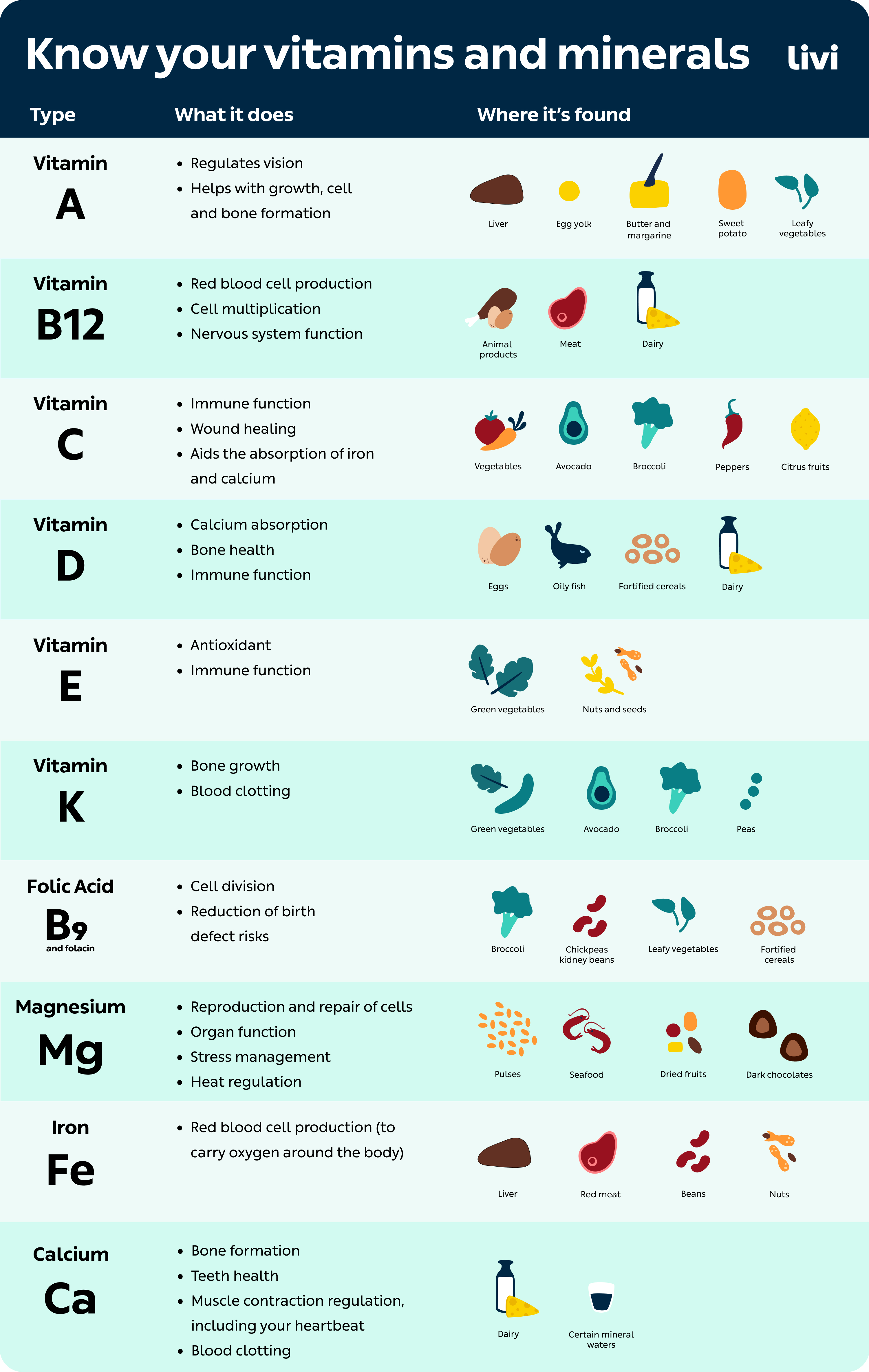
Introduction

Vitamin is an essential nutrient that is required in small amounts by the body for proper functioning. It plays a crucial role in maintaining overall health and well-being.
Types of Vitamins
There are 13 essential vitamins that are classified into two categories:
- Vitamin A
- Vitamin D
- Vitamin E
- Vitamin K
- Vitamin C
- Vitamin B1 (Thiamine)
- Vitamin B2 (Riboflavin)
- Vitamin B3 (Niacin)
- Vitamin B5 (Pantothenic acid)
- Vitamin B6
- Vitamin B7 (Biotin)
- Vitamin B9 (Folic acid)
- Vitamin B12
Functions of Vitamins
Vitamin A: Supports vision, immune system, and cell growth.
Vitamin D: Helps in the absorption of calcium and phosphorus, promoting strong bones.
Vitamin E: Acts as an antioxidant and protects cells from damage.
Vitamin K: Aids in blood clotting and bone metabolism.
Vitamin C: Boosts the immune system, collagen production, and acts as an antioxidant.
Vitamin B1 (Thiamine): Converts food into energy and supports nerve function.
Vitamin B2 (Riboflavin): Helps in the conversion of food into energy and plays a role in growth and development.
Vitamin B3 (Niacin): Supports energy production and proper functioning of the nervous system.
Vitamin B5 (Pantothenic acid): Aids in the metabolism of carbohydrates, proteins, and fats.
Vitamin B6: Plays a role in brain development and the production of hormones and neurotransmitters.
Vitamin B7 (Biotin): Supports the metabolism of carbohydrates, proteins, and fats.
Vitamin B9 (Folic acid): Essential for DNA synthesis and cell division, especially during pregnancy.
Vitamin B12: Required for proper red blood cell formation and neurological function.
Sources of Vitamins
Vitamins can be obtained from a variety of food sources. Some common sources include:
- Fruits and vegetables
- Meat and poultry
- Whole grains
- Dairy products
- Nuts and seeds
Conclusion

Vitamins are essential for the proper functioning of the body. A balanced diet that includes a variety of nutrient-rich foods is crucial for meeting the body’s vitamin requirements. However, it is important to consult a healthcare professional before starting any vitamin supplements.
Dietary sources of the natural forms of vitamin K

Vitamin K is a vital nutrient that plays a crucial role in blood clotting, bone health, and heart health. There are two natural forms of vitamin K, namely vitamin K1 (phylloquinone) and vitamin K2 (menaquinone). Consuming foods rich in these forms of vitamin K can help to ensure an adequate intake of this essential nutrient.
Here is a table listing some dietary sources of the natural forms of vitamin K:
| Food | Vitamin K1 (mcg per 100g) | Vitamin K2 (mcg per 100g) |
|---|---|---|
| Kale | 681.0 | 31.3 |
| Spinach | 483.0 | 0.5 |
| Broccoli | 89.2 | 0.0 |
| Brussels sprouts | 177.0 | 0.0 |
| Green peas | 37.3 | 0.0 |
| Prunes | 59.5 | 1.4 |
| Grass-fed beef liver | 3.6 | 90.0 |
| Natto | 0.0 | 1103.0 |
| Hard cheese | 0.0 | 76.3 |
It is important to note that the amounts of vitamin K can vary depending on factors such as cooking methods and the freshness of the food. Including a variety of these foods in your diet can help to ensure a sufficient intake of vitamin K.








